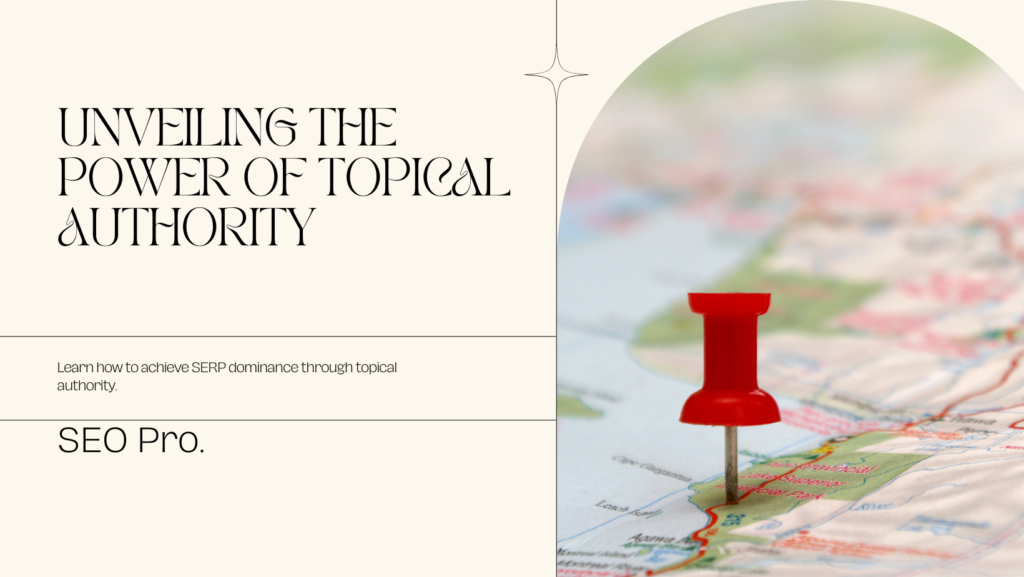Accelerate Your Page Ranking with Proven SEO Strategies
You’ve published your web page, and Google has indexed it. Now what? Rather than waiting for your page to crawl through the SERPs at a snail’s pace, why not take control and boost its ranking swiftly? In this article, we’ll delve into effective strategies to expedite the ranking of your indexed pages, ensuring you reap the rewards of your SEO efforts sooner rather than later.
1. Elevate Your Technical SEO Game
Technical SEO is the backbone of page optimization. From optimizing website speed to mastering web developer intricacies like Pagination and Canonicalization, here’s how you can enhance your page’s technical SEO:
- Streamlined Navigation and User Experience: Ensure your site boasts a user-friendly structure, easy-to-find information, and an intuitive design. This not only keeps visitors engaged but also improves search rankings.
- Optimize Page Load Speed: Use tools like PageSpeed Insights to analyze and optimize your site for faster loading times. Aim for a loading speed of under two to three seconds for both mobile and desktop.
- Secure Your Site with HTTPS and SSL Certificates: Boost credibility and rankings by implementing HTTPS and SSL certificates.
- Core Web Vitals Optimization: Focus on Largest Contentful Paint (LCP), Cumulative Layout Shift (CLS), and First Input Delay (FID). Meeting Google’s criteria on these metrics ensures maximum ranking benefits.
- Image Optimization: Resize, enable lazy loading, and compress images. Utilize plugins like WP Rocket and Smush for efficient image optimization.
- Mobile-Friendliness: Prioritize mobile-friendliness, and use tools like Google’s Mobile-Friendly Test to assess and enhance it.
- Reliable Server Hosting: Choose a dependable hosting server to prevent downtime and ensure fast loading times.
2. Master On-Page SEO Techniques
On-page SEO is about controlling elements on your website, such as content, meta tags, and images. Strike a balance between pleasing Google’s algorithms and engaging your audience:
- Match Search Intent: Ensure your content directly addresses the questions or needs of searchers.
- Optimize Page Titles for High CTR: Craft well-optimized, clickable page titles reflecting your content accurately.
- Strategic Internal Linking: Link relevant pages to distribute authority and enhance user navigation.
- Optimize Page Headings: Use header tags to structure content, aiding readability and search engine understanding.
- Image Alt Tags: Provide text descriptions for images, enhancing accessibility and providing context to search engines.
- Simplify URLs: Use descriptive keywords in URLs for informative and SEO-friendly links.
3. Execute Off-Page SEO Techniques
Off-page SEO establishes external trust signals for your site, influencing SERP rankings:
- Build Quality Backlinks: Acquire high-authority backlinks through guest posting and link baiting.
- Leverage Social Media: Maintain a positive online reputation and indirectly influence rankings through social signals.
Why Some Indexed Pages Lag Behind on SERPs
Despite your efforts, certain pages may struggle to rank high. Common reasons include:
- Keyword Competition: Target less competitive or long-tail keywords relevant to your content.
- Duplicate Content: Use canonical tags or 301 redirects to resolve identical content issues.
- Search Algorithm Updates: Stay updated on SEO best practices to adapt to algorithm changes.
- Geotargeting or Personalization: Ensure your content aligns with your target audience.
Monitoring and Optimization with Keyword.com
Track the performance of your ranked pages using Keyword.com, a powerful website rank checker. Analyze competitors and receive automated reports to fine-tune your strategies.
Try Keyword.com for free for 14 days and elevate your SEO game!

FAQs on Page Indexing and Ranking
- How Long Does it Take for an Indexed Page to Rank?
- The timeframe varies based on factors like competition, content quality, and SEO efforts, ranging from days to months.
- Does Updating Content Help It Rank Faster?
- Yes, regular updates signal relevance to search engines, positively impacting rankings.
- How Often Do Search Engine Algorithms Update?
- Frequent updates occur, potentially influencing ranking speed. Stay informed and adapt your strategy accordingly.
Subscribe to our newsletter!
- The Power of Local Citations: A Crucial Boost for Your Local SEO

- Unveiling the Power of Topical Authority: A Roadmap to SERP Dominance

- Unraveling the Mystery of Keyword Cannibalization: A Definitive Guide

- Unlocking the Power of Local SEO: A Guide to Google Local SERPs

- Effective Local Link Building Strategies for Business Success



Leave a Reply